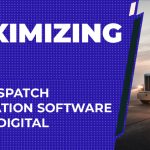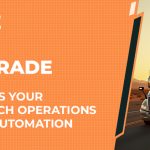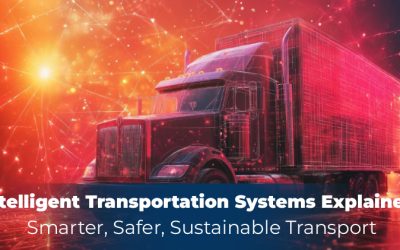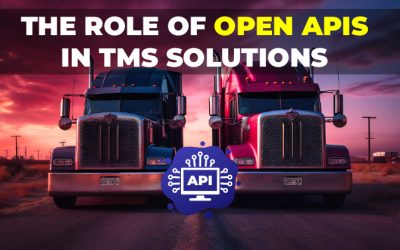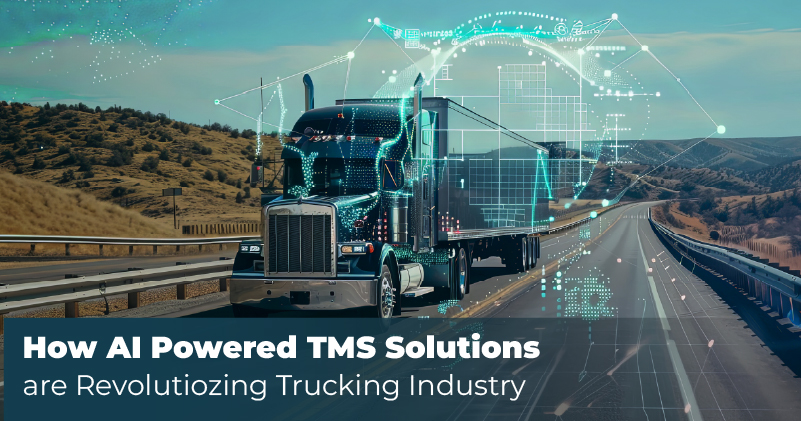
Artificial intelligence (AI) is fundamentally reshaping industries around the world, and transportation is undergoing one of the most significant transformations. From optimizing traffic flow to advancing autonomous vehicles, AI is revolutionizing intelligent transportation systems (ITS), making mobility more efficient, safer, and sustainable. At TMS-Digital, we’re at the forefront of this shift—empowering cities, fleets, and logistics providers with AI-powered transportation solutions designed for the challenges of today and the demands of tomorrow.
What Are AI-Powered Intelligent Transportation Systems?
An intelligent transportation system (ITS) integrates advanced technologies—including machine learning, big data analytics, and automation—to enhance traffic flow, reduce congestion, improve safety, and increase sustainability. TMS-Digital’s AI-driven solutions go beyond traditional transportation tools by enabling real-time decision-making and adaptive mobility systems that respond to dynamic urban environments.
Key Use Cases of AI in Intelligent Transportation
- Real-Time Traffic Management
Urban congestion costs the U.S. economy nearly $87 billion annually, according to INRIX. TMS-Digital’s AI-powered platforms analyze massive datasets from sensors, GPS, and surveillance infrastructure to anticipate congestion, optimize traffic signals, and reroute vehicles in real-time. AI-based traffic management can reduce travel times by up to 25%, directly improving citywide mobility and reducing fuel waste.
- Autonomous Vehicle Integration
Self-driving cars rely heavily on AI to interpret their surroundings and make split-second driving decisions. TMS-Digital provides the technological backbone to support autonomous vehicles, with advanced sensor fusion, predictive modeling, and decision-making algorithms. As 94% of accidents are due to human error (NHTSA), AI integration offers a significant step toward safer roads. The autonomous vehicle market is projected to reach $556 billion by 2026, emphasizing the need for infrastructure-ready ITS.
- Enhancing Public Transportation Efficiency
AI can revolutionize public transit systems by predicting passenger demand, dynamically adjusting routes, and reducing wait times. TMS-Digital’s solutions use real-time data to help cities optimize bus and train operations. Studies show that AI-enabled public transport systems can reduce fleet fuel consumption by 10–15% while increasing overall efficiency and passenger satisfaction.
- AI in Traffic Incident Response
Quick and effective response to traffic incidents saves lives and keeps cities moving. TMS-Digital platforms process real-time data from cameras, vehicle sensors, and even social media to detect accidents and dispatch emergency services instantly. Singapore’s AI-driven traffic management has seen a 15% reduction in response times. Globally, road traffic accidents account for approximately 3% of GDP losses—highlighting the need for smarter, faster response mechanisms.
- Smart Parking Systems
Parking-related congestion is a growing issue in urban areas, with 30% of traffic caused by drivers searching for parking. TMS-Digital’s smart parking systems use AI and IoT sensors to direct drivers to the nearest available spot, reducing search times by up to 43% and cutting emissions from idling vehicles.
Driving Sustainability with AI
AI doesn’t just make transportation smarter—it also makes it greener. TMS-Digital’s AI solutions help cities and fleet operators reduce emissions by:
- Optimizing routes to reduce mileage and fuel consumption
- Prioritizing eco-friendly transit modes (e.g., buses, bicycles)
- Managing traffic signals to reduce idle times
According to the International Transport Forum, AI-optimized traffic systems can cut CO2 emissions by up to 20%, supporting long-term climate goals.
AI in Freight and Logistics
Beyond public transport and urban planning, TMS-Digital’s AI tools are transforming freight logistics. With predictive analytics and real-time data, companies can:
- Forecast demand with greater accuracy
- Optimize delivery routes to reduce operational costs
- Minimize delays and avoid high-risk zones
McKinsey & Company reports a potential 15% increase in logistics efficiency and a 20% reduction in costs through AI adoption. Additionally, route optimization powered by TMS-Digital can reduce fuel costs by up to 12%, delivering measurable ROI for carriers and shippers.
The Future of AI in Transportation
As AI evolves alongside technologies like 5G, IoT, and blockchain, intelligent transportation systems will become more autonomous, connected, and secure. TMS-Digital is helping shape this future by building AI-powered solutions that integrate seamlessly across transportation ecosystems—from traffic lights to delivery fleets.
Expect smarter infrastructure, faster deliveries, safer streets, and greener cities. As investments in smart city initiatives grow, TMS-Digital’s platforms will remain pivotal in enabling adaptive, sustainable, and highly efficient mobility systems.
Conclusion
AI is not just enhancing transportation—it is transforming it. With advanced capabilities in traffic management, public transit optimization, freight logistics, and smart parking, TMS-Digital’s intelligent transportation solutions are setting the standard for a smarter, safer, and more sustainable future.
Cities, logistics firms, and public transport authorities that embrace AI now will gain a significant edge in efficiency and resilience.
Ready to revolutionize your transportation network? Contact TMS-Digital to book a demo and see how our AI-powered solutions can future-proof your mobility strategy.




